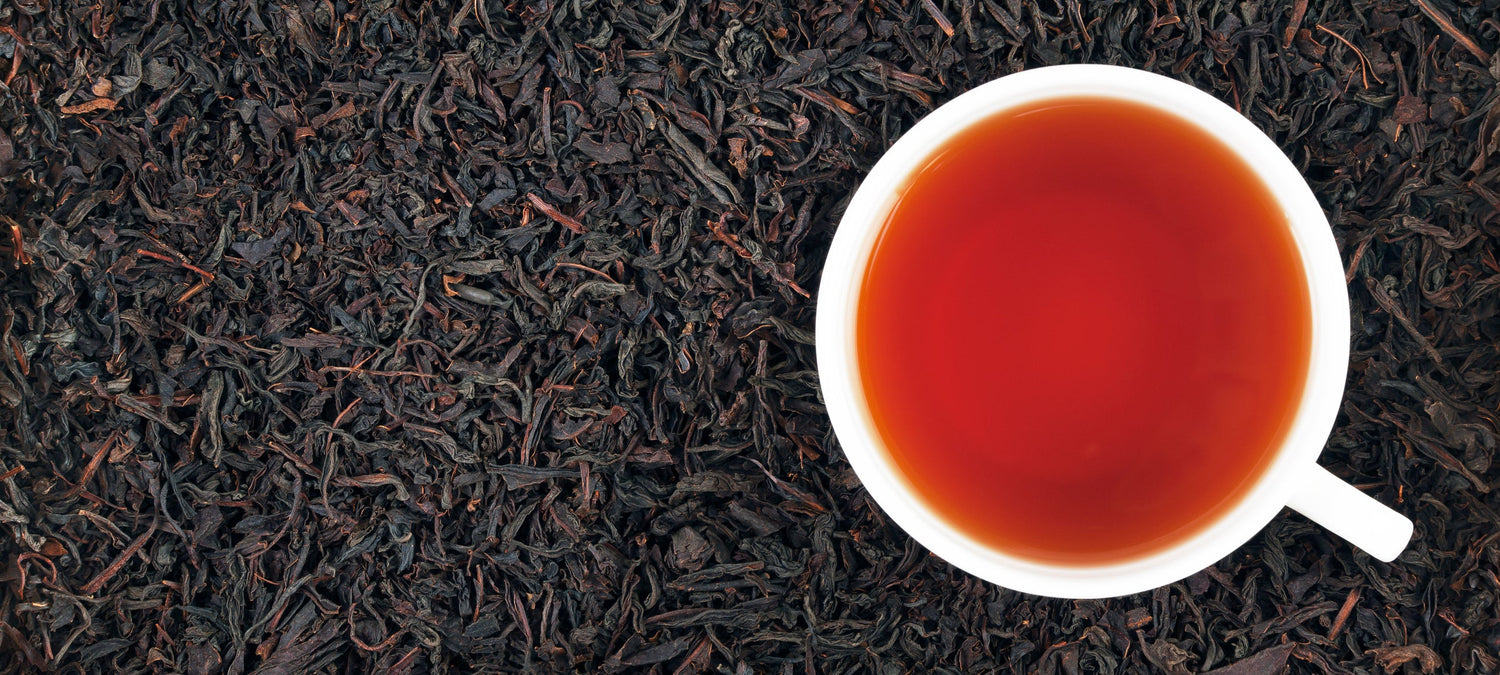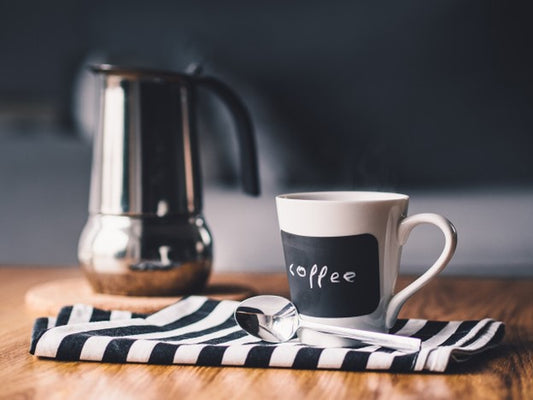Every one of us is dealing with stress and anxiety these days. Life appears to be getting busier day by day partially due to advancements in technology. The ideal way to get rid of this stress is to stay calm and enjoy a relaxing cup of tea. Tea has a long history of being used as a medication. Tea benefits range from preventing colds to weight loss and protecting from certain types of cancer. And last but not least, the relaxing teas do wonders to relieve stress and anxiety.
We all battle with stress, but we all know how much better off we'd be — both physically and psychologically — if we could only get it under control and discover effective stress relievers. While stress may be a motivating factor at times (for example, when you're under pressure to do well at work or pass an important exam), more and more evidence suggests that chronic stress affects the body in ways comparable to a poor diet, lack of sleep, or sedentary lifestyle. A good way to cope with stress and anxiety is to make you relax and sip on a calming cup of tea.
Does Tea help relieve stress?
Tea has long been used as a natural stress reliever and to unwind after an exhausting day. Pouring a hot steaming cup of tea and sipping it while reading your favorite book or relaxing in a comfortable chair helps to improve mood and reduce stress. Research revealed that tea contains potent chemicals that can target stress and sadness on a molecular level.
How does tea reduce stress?
Tea can help make you relax in several ways. Firstly, no matter which cup of relaxing tea you drink, it will allow you to sit down, relax for some time, and enjoy the moments. Occasional tea breaks in the day encourage you to take some time out of your busy schedule for yourself and unwind.
Next, taking the time to fully enjoy your tea allows you to be present in the moment and reflect on your thoughts. This is known as mindfulness, and it offers the potential to improve your life. Finally, many teas include chemical constituents that have been scientifically demonstrated to induce tranquility and even have sedative properties. L-theanine, GABA, and valerianic acid, for example, may all have a distinct effect on relaxing and improving quality of life.
Teas with adaptogenic properties may also aid in the reduction of all sorts of stress. Ashwagandha, holy basil, Siberian ginseng, gotu kola, and Korean ginseng are among the most popular.
Best Relaxing teas
There is a huge list of teas that help calm the nerves, reduce stress, aid sleep, boost energy, and uplift spirit, however, some commonly used teas that go the extra mile are discussed here.
Chamomile tea
Chamomile tea is best known for its relaxing and soothing properties and helps you unwind after a hectic day. The herb possesses some bioactive compounds such as apigenin, which holds mild sedative and antianxiety effects. A study showed that consumption of chamomile extract regularly for several weeks resulted in a reduction in moderate to severe symptoms of generalized anxiety disorders. [1] [2]
In addition to relieving stress and anxiety, chamomile tea is known as the queen of teas aiding sleep. By relieving stress and anxiety, it not only helps you fall asleep but also improves sleep quality. Individuals who are sensitive to flowers like daisies should avoid chamomile tea to reduce the risk of allergies. Moreover, pregnant women should use this tea after consulting with their healthcare provider.
Besides its relaxing and soothing properties, chamomile tea is also used as an effective remedy to relieve stomach pain and inflammation.
Lavender Tea
Lavender tea has been shown to reduce stress and improve relaxation making it an ideal beverage to enjoy. It finds its use in various calming tea blends to combat stress and anxiety. The calming and luxurious aroma of lavender tea makes bedtime more relaxing. The study revealed that lavender is as effective as lorazepam in treating anxiety disorders. [3]
The tea is prepared by steeping purple buds of the Lavendula angustifolia plant in hot water. A steaming cup of lavender tea sweetened with honey is a perfect cup of tea to improve relaxation and calmness. Lavender tea is best known as relaxing tea to improve sleep quality and treat insomnia. In addition to calming nerves and relieving stress, lavender is also known for warding off headaches and muscle tension. Lavender also has beneficial effects on digestive health and alleviates inflammation.
Passion flower tea
Passionflower tea, prepared from the leaves of wildflower passion flower has traditionally been used as a natural remedy for stress and anxiety. Packed with phytochemicals such as alkaloids, passionflower tea can reduce stress and leave you feeling calmer and relaxed. This invigorating beverage is beneficial for improving sleep quality, relieving inflammation, and protecting the body from stress, skin and digestive issues, and restlessness. [4]
Passionflower is not recommended for pregnant women as it is known to cause uterine contractions.
This tea also includes compounds that may interfere with medicines, so consult with your healthcare professional before drinking it to confirm it's safe for you.
Lemon balm tea
Lemon balm, a mint relative with a lemony aroma, is a popular remedy for insomnia, anxiety, and depression. Lemon balm tea is prepared either from the leaves of the plant (Melisa officinalis) or blended with other herbs such as chamomile or passionflower. The research concluded that when blended with other herbs lemon balm tea does wonders to relieve stress and disorders of the central nervous system.

It is believed to work by increasing GABA, a neurotransmitter that relieves stress. [7]
Lemon balm extract was demonstrated to aid with mild to moderate anxiety and sleeplessness.
In a 2018 study, researchers discovered that a lemon balm pill improved symptoms of anxiety, despair, stress, and sleeplessness in persons with angina. [8]
Lemon balm has also been used to treat sleeplessness, sadness, and anxiety. Some people believe lemon balm is safe to use during pregnancy, but recent evidence shows conflicting results. Because its safety during pregnancy and nursing has not been established, it is best avoided.
Valerian tea
Valerian tea is prepared from the valerian plant's roots known as Valeriana officinalis. It has a strong, earthy flavor with a pleasant scent that includes pine overtones.
Valerian root has long been used in herbal medicines to relieve anxiety and depression symptoms. One research found that valerian extract reduced anxiety before surgery. [9]
Valerian tea is also known to improve sleep quality and relieve headaches and heart palpitations.
There is little research about its safety in pregnancy and breastfeeding, to avoid the risk, it should better be avoided. Valerian possesses sedative effects that may make you drowsy and when utilized with alcohol or other sedative medications, the effects would be too strong.
FAQs
Is green tea good for anxiety?
Green tea contains L-theanine, an amino acid that can reduce stress and calm the nerves. It should be remembered that green tea also contains caffeine and should be consumed in moderation.
Does chamomile tea help with anxiety?
Chamomile tea is an ideal option to soothe the symptoms of stress and anxiety. Sipping on a cup of chamomile tea makes you feel relaxed and helps you fall asleep.
How do herbal teas help to reduce stress?
Herbal teas are calming and comforting, and are frequently consumed while sitting. Tea has also been found in research to reduce cortisol levels (the stress hormone). Herbal teas contain natural substances that have been associated with anxiety and stress relief, such as chamomile, lemon balm, or mint.
What tea is good for anxiety and depression?
There is a huge list of teas that help relieve stress and elevate mood. However, commonly used relaxing teas include chamomile, mint, lemon balm, lavender, gotu kola, passion flower, lemon balm, and rosemary tea.
Can drinking iced tea relieve stress?
Teas are packed with natural compounds that help reduce stress and anxiety and uplift spirit. Some people love hot tea while others find peace in iced tea. Whether hot or iced, teas possess the same relaxing and calming properties that alleviate stress.





